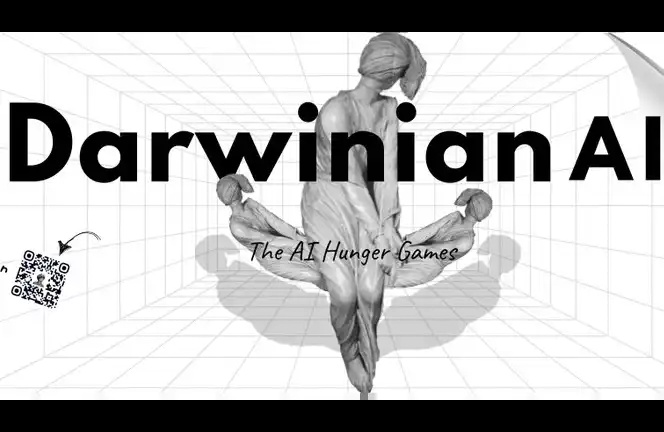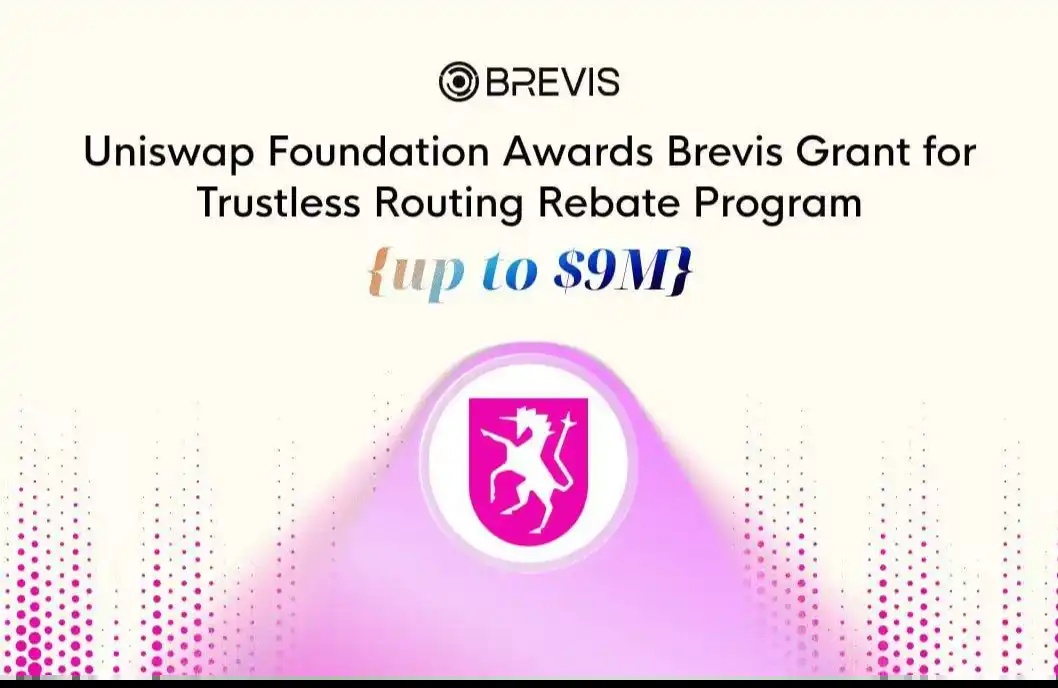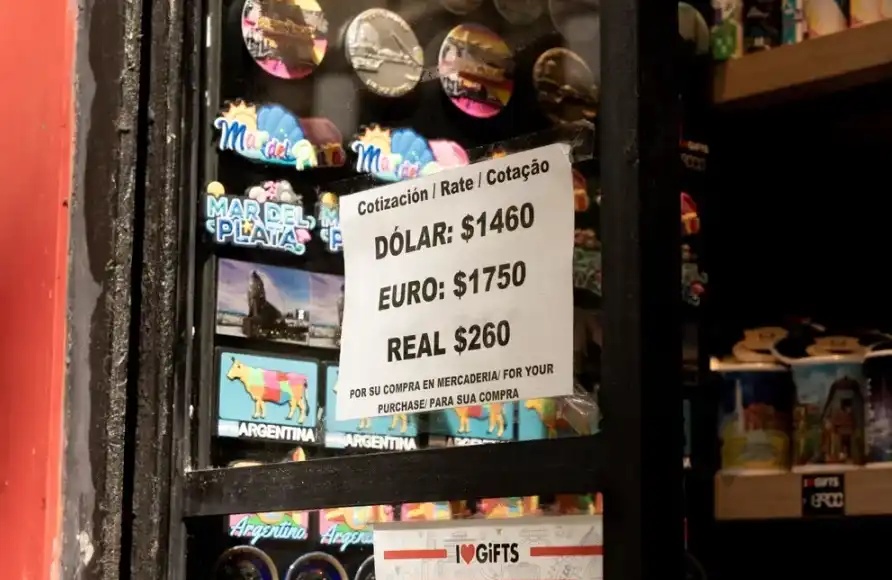From retail giants to Web3 pioneers: What Did L 'Oreal, Nike and LVMH do?
From Retail Giants to Web3 Pioneers: What Did L 'Oreal, Nike and LVMH Do?
Original article by CB Insights
Bai Ze Research Institute
Web3, a decentralized Internet built on an open, permissive blockchain network, is gaining traction.
Traditional brands and retailers embracing Web3, meta-universes (collective virtual worlds) is not just hype, as it is a matter of brand relevance and revenue opportunities. To date, leading retail brands have racked up more than $250 million in revenue on NFT, according to Dune Analytics, a blockchain data aggregation site.
Web3 is driving a shift in the way brands, retailers sell and interact with consumers that can create new opportunities in terms of revenue, marketing channels, community building and loyalty.
There is a sense of urgency among these legacy brands to figure out how to take advantage of Web3, especially after many, especially luxury brands, missed the initial opportunity to expand into e-commerce and have only been able to catch up. Now, some brands are anxious to avoid making the same mistake again.
As Web3 technology takes hold, digital interaction with users - from selling virtual goods to using virtual worlds as new marketing channels - presents huge branding and monetization opportunities for brands and retailers in the beauty and fashion space.
How do L'Oral, Nike and LVMH move into Web3?
Leading fashion and beauty companies do not have a unified answer to the question "how to adopt Web3," but most experiment primarily through partnerships to explore the best strategy for their brands, as partnerships offer a low-cost way to test and learn.
L'Oral (L 'Oreal) is focused on attracting new audiences from the Web3 world through initiatives such as offering digital assets on the metacomverse platform and airdropping exclusive NFT. The company has been working with startups that create interoperable virtual goods, which are digital assets that can be used in different virtual worlds.
Nike, meanwhile, has been one of the first among the retail giants to explore virtual goods as a new source of revenue and a place in the meta-universe. The company acquired virtual sneaker developer RTFKT in December 2021, positioning itself as a leader in the adoption of Web3 technology.
Finally, one of LVMH's major initiatives is the use of blockchain technology to verify the authenticity of luxury goods, as well as to track the product's progress from raw materials to distribution.
L'Oral
L'Oral has been a pioneer in adopting digital technology since it was first announced as a "beauty technology leader" in 2018.
Now the beauty group is embracing Web3. The company has coined the term "on-chain beauty" for itself, positioning itself as an emerging platform where creators can interact with consumers and consumers can shop in a meta-universe.
L'Oral has partnered with a number of Web3 and metaverse startups to create new beauty experiences, including virtual collectibles, avatars, virtual products to attract more new consumers.
In October 2022, L'Oral cemented its commitment to explore the Web3 space by forming a Web3-focused accelerator program in partnership with tech giants Meta and Incubateur HEC Paris.
Ready Player Me
Relationship: Partnership
In November 2022, L'Oral partnered with avatar company Ready Player Me to develop 3D hair and makeup that users can use to customize their avatars in different virtual worlds.

Estonia-based Ready Player Me allows users to turn selfies into customizable avatars. The company's goal is to let users use its avatars in different virtual worlds, allowing users to maintain a unified identity across different platforms.
Ready Player Me currently has more than 3,000 customers, including fashion brand Nike, Nike's RTFKT and meta-universe platform VRChat. The startup closed a $55 million Series B funding round in August 2022 from investors including A16z Crypto and Roblox CEO David Baszucki. With the money, the company plans to improve its authoring tools.
By partnering with Ready Player Me, which focuses on interoperability, L'Oral is maximizing the opportunity for consumers to use its digital assets across platforms.
In a related development, L'Oral also announced a partnership with Animaze, another avatar startup that also focuses on interoperable avatars - proving once again that the field is a priority for L'Oral.
Arianee
Relationship: Partnership
L'Oral teamed up with Web3 startup Arianee to create a digital wallet that allows its top cosmetics brand Yves Saint Laurent (YSL) Beaut Consumers can collect NFT. Arianee, based in France, is dedicated to helping luxury brands create NFT for Web3 consumer experiences, such as making physical products.
When consumers connect their digital wallets to L'Oral's Web3 platform, NFT will be associated with real life and online experiences - such as buying limited products and accessing exclusive events.

In addition to expanding consumer engagement through NFT, L'Oral uses NFT to pursue loyalty. The company launched the NFT Loyalty program, which allows consumers to earn NFT or other rewards while participating in activities.
The Sandbox, the People of Crypto
Relationship: Partnership
In June 2022, NYX Cosmetics, a cosmetics brand owned by L'Oral, cooperated with The Sandbox, a leading meta-universe platform, and People of Crypto, a blockchain company. The former has developed an extremely large virtual world, The latter focuses on the diversity of Web3.
The Sandbox is one of the most famous decentralized virtual worlds. Through the collaboration, L'Oral presented a series of NFT avatars designed with virtual makeup.

Working with meta-universe platforms such as The Sandbox demonstrates L'Oral's goal to create more interaction with consumers in the Web3 world, crafting the consumer's journey.
Opensea
Relationship: Partnership
L'Oral launched five new FTTS in December 2021 in partnership with Opensea, an NFT marketplace. The theme of these NFT collections is red and empowering women, inspired by the red lipstick of L 'Oreal Color Riche Paris. Each NFT starts at $1,500.
By increasing its presence on emerging platforms, L'Oral is actively expanding new marketing channels and reaching new audiences, including Web3 enthusiasts.
In addition, L'Oral has previously said that targeting gamers is an emerging marketing channel for the company, highlighted by its partnerships with other startups such as Ready Player Me.
ModiFace
Relationship: Acquisition
Since acquiring augmented reality (AR) technology provider ModiFace in 2018, L'Oral has emerged as a leader in integrating AR into the beauty shopping experience.
In addition to pursuing virtual fitting technology, L'Oral is committed to developing virtual products and avatars that are becoming increasingly popular in some virtual worlds. It also introduced a virtual look that players could use while playing.

Nike
Nike was one of the first retail giants to show interest in Web3, metacomes, and virtual goods. In 2021, it filed several trademark applications outlining its intent to make and sell virtual sneakers and clothing. It also launched the Nike Virtual Studio in January 2022 to focus on blockchain, Web3 and the metacomes.
The sportswear giant has already seen impact returns from its Web3 efforts. Nike has earned more than $185 million in revenue and royalties from NFT, according to Dune Analytics, a blockchain data aggregation site. This is the next closest brand, Dolce & Gabbana ($24 million) made more than seven times that.
Nike's subsequent moves show that the company intends to bring its existing consumer community into the Web3 world, as well as attract new consumers. Overall, Nike aims to make digital assets and the digital economy a bigger part of its future business model.
Qartium
Relationship: Partnership
In November 2022, Nike partnered with Qartium, a decentralized commerce platform, to sell its NFT.
Decentralized business models allow consumers to transact directly with sellers. In this way, both parties reduce transaction costs and enhance transaction security. This balances authentication, visibility, and community to achieve a business experience that users can trust.
Qartium is a fairly new blockchain project that claims to be able to sell a wide variety of items, both virtual and physical. Partnerships with well-known companies like Nike and Amazon could bring legitimacy and more consumers to the platform.
RTFTK
Relationship: Acquisition
Nike acquired virtual sneaker developer RTFKT in December 2021 for an undisclosed sum. The NFT created by RTFKT is based on blockchain and allows users to prove ownership of their digital assets.
Since the acquisition of RTFKT, Nike has been thinking of new ways to monetize its brand in the Web3 space and attract new consumers.
In November 2022, the company announced the launch of its new Web3 platform,.swoosh, where consumers can buy, design, and trade virtual goods. The platform is designed to make NFT more accessible, allowing those unfamiliar with Web3 to still buy virtual goods and interact with them.
The platform will also allow fans and creators to enter design competitions for different virtual assets, potentially sharing a portion of the revenue from sales of their designs with Nike.
Nike says all of its virtual goods, from virtual jerseys to virtual sneakers, will be able to be worn in different games and metacomes.
Roblox
Relationship: Partnership
While virtual world platform Roblox is not currently considered part of Web3, it is the bellwether of the metaverse, with an active user base and a burgeoning virtual economy that brands want to tap into. By 2022, the company says, more than 11 million creators have designed virtual fashion on its platform -- more than 200 times the number of American fashion designers, according to some estimates.
Nike partnered with Roblox to build "Nikeland" in 2021, a world where users can buy virtual Nike clothing for their avatars. The two-month experience attracted more than 21 million visitors.
Nikeland has also launched mini-games and digital experiences that correspond to real-world events, such as Roblox's version of Lebron James' "guest appearance" during NBA All-Star week.

Nike is constantly introducing new experiences into virtual worlds to meet consumers' demand for fresh content.
Roblox has become a popular marketing channel for brands and retailers, who see it as a testing ground for brands to reach a younger audience (two-thirds of users are under the age of 16). So far this year alone, Roblox has struck partnerships with companies such as Burberry, Tommy Hilfiger, Walmart and Gucci.
LVMH
LVMH is the world's largest luxury group by revenue, with revenue of more than $68 billion in 2021.
Now, the company is moving into the metaverse and exploring Web3 technology.
While it is slightly more cautious about the metacomes and Web3, LVMH says it sees its future in Web3 as playing a role in key areas such as traceability, virtual worlds and digital twins-virtual goods that correspond to physical goods. In the future, the company also plans to allow consumers to make payments with cryptocurrencies and create a virtual world for its jewelry brand Bulgari.
RTFKT
Relationship: Partnership
In November 2022, Nike's RTFKT and LVMH launched their NFT collection based on the latter's luggage brand RIMOWA, asking consumers to complete a challenge to cast their NFT.
The companies are also linking the real and virtual worlds: In addition to the NFT, the company has also released limited-edition suitcases.
Altava
Relationship: Partnership
Singapore-based Altava raised $9 million in seed funding in March 2022 to develop customizable digital virtual worlds for brands. In May 2022, LVMH and Altava jointly created Livi, the first meta-space ambassador.
The following month, Livi co-hosted LVMH's awards ceremony at VivaTech, a technology conference in Paris.

Virtual people are growing in popularity, especially in Asia. These computer-generated characters have a certain appeal in themselves, and are often less risky and restrictive.
With the rise of the meta-universe, virtual people like LVMH's Livi could be the "standouts" of the future, as they act as new channels for interaction with fans and consumers.
ConsenSys
Relationship: Partnership
In 2019, LVMH joined forces with Microsoft and blockchain developer ConsenSys to create Aura, a platform for verifying the authenticity of luxury goods via blockchain. Aura allows customers to track their products throughout the process from design to distribution, while providing LVMH with additional protection against counterfeit goods and fraud.
In April 2021, Prada and other brands, including Cartier, joined together to form the Aura Blockchain Consortium. The alliance is opening the Aura platform to any luxury brand that wants to take advantage of blockchain-based solutions to track their goods.

Moreover, in November 2022, LVMH partnered with Security Matters, a publicly traded blockchain developer, to more closely track its raw materials and use blockchain to reduce waste.
These partnerships show that LVMH attaches great importance to the authentication of the authenticity of luxury goods, down to the input of raw materials.
Look into the future
Today, traditional brands and retailers are competing with streaming giants, gaming platforms and social media for consumers' attention through digital content. This challenge will only grow as the rise of the metacomes further changes the way consumers spend their time.
As competition for consumer attention intensifies, the adoption of Web3 technology can open up new opportunities for brands in terms of revenue, marketing and brand relevance.
As more and more brands enter the Web3 and meta-universe, more and more creative approaches are needed to stand out.
Going forward, we are likely to see more brands experimenting in the Web3 world. L'Oral, for example, says it is exploring creating the first "decentralised record label" for creators in Web3.
As virtual goods continue to gain popularity, interoperability across virtual worlds -- where consumers can use digital assets across platforms -- will open up even more possibilities for Web3 and metacomes. As the lines between the real and virtual worlds become more blurred, digital twin products will grow in popularity. Consumers want to be able to purchase virtual goods in exchange for physical goods or related experiences.
In addition, as Web3 evolves, investments and acquisitions outside of partnerships will provide a more concrete road map for brands on how to incorporate Web3 into their business models.
Original link
Welcome to join the official BlockBeats community:
Telegram Subscription Group: https://t.me/theblockbeats
Telegram Discussion Group: https://t.me/BlockBeats_App
Official Twitter Account: https://twitter.com/BlockBeatsAsia


 Forum
Forum Finance
Finance
 Specials
Specials
 On-chain Eco
On-chain Eco
 Entry
Entry
 Podcasts
Podcasts
 Activities
Activities
 OPRR
OPRR







